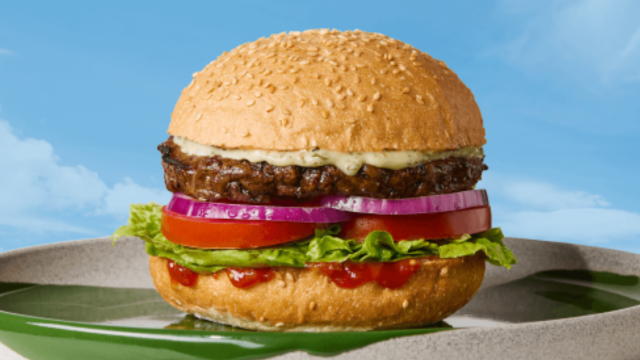Grill’d has announced its new beef range of ‘Gamechanger’ burgers, made from cattle with the claim of producing less than two-thirds less methane emissions than regular cattle.
It’s a really cool and welcome idea, offering a low emissions alternative to the standard beef on offer at Grill’d (and its competitors).
The big difference between the beef in the Gamechanger and beef in normal burgers at Grill’d is the feed that the cows eat before they’re slaughtered and turned into food.
The cows are given feed with asparagopsis blended in. Asparagopsis is a type of seaweed with a really interesting property to it, allowing for a reduction in methane emissions in cows by up to 67 per cent. It’s cultivated by Aussie company Sea Forest, the CEO of which is now an ambassador for Polestar.
Grill’d says that ongoing trials are underway at the Grill’d farm, aiming to hit a 90 per cent reduction in methane emissions. It has been estimated that asparagopsis feed can reduce emissions by up to 98 per cent.
“Asparagopsis is a seaweed native to Tasmania. It’s very special as it has a unique set of properties that carry across to cattle, and when consumed, it reduces methane in those animals,” chief scientific officer of Sea Forest Rocky De Nys said.
“It’s great to see a direct-to-consumer product that Sea Forest is contributing to where consumers can make a real difference themselves – enjoying low-carbon products that are better for the planet.”
It’s a remarkable plant that could have a great impact on the meat industry. It’s innovations like Sea Forest’s cultivation of asparagopsis that will lead to changes in emissions generated by entire industries.
But obviously, if we’re talking about sustainability and solutions for the meat industry, we need to address the elephant in the room: while this is a noticeable reduction in the emissions generated by cows, there’s no way that this is the most sustainable way that you can have a burger, especially from Grill’d, a burger joint that has gone above and beyond in creating a diverse vegetarian and vegan menu.
It’s estimated that about one-third of human-caused emissions come back to the meat industry. Optimistically speaking, if the governments of the world mandated a need to use asparagopsis in cattle feed, we’d see a noticeable reduction in emissions, but we’d be remiss not to highlight that there are solid arguments against eating meat, or at the very least, cutting back on its consumption.
If you want a really good explainer on the ins and outs of the impact of the meat industry ethically and on the planet, Kurzgesagt has a brilliant video on the topic.
I’m in no way discounting the work Sea Forest has done, nor the good news that Grill’d is using asparagopsis-fed meat.
This is a terrific burger for meat eaters, but the best thing you can do for the environment is to consume less – and part of that notion includes gravitating to foods that have a smaller carbon footprint or reducing your intake of foods with a greater carbon footprint. If we’re thinking about the Grill’d menu, this probably includes the Mushroom Truffle burger, or the Impossible Cheeseburger.
You can snatch up the Gamechanger burger at Grill’d at 61 restaurants across Australia, for $13.50 ($1 above the price of the standard beef burger).
Apparently it doesn’t taste like seaweed.
